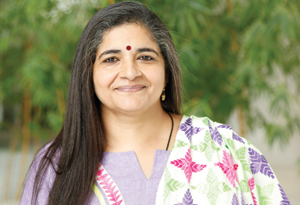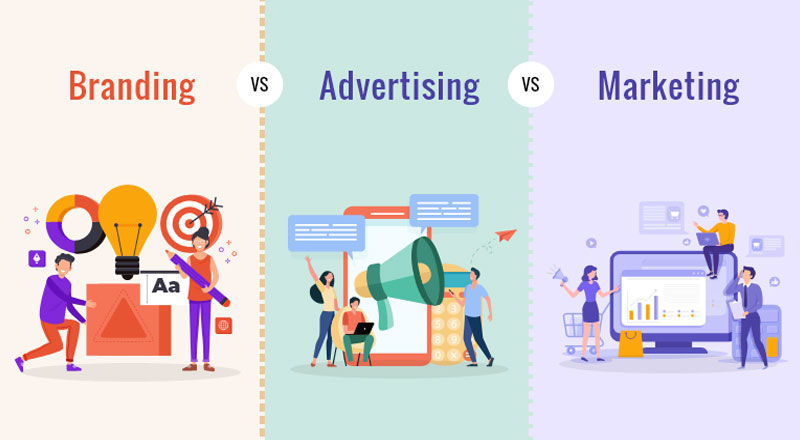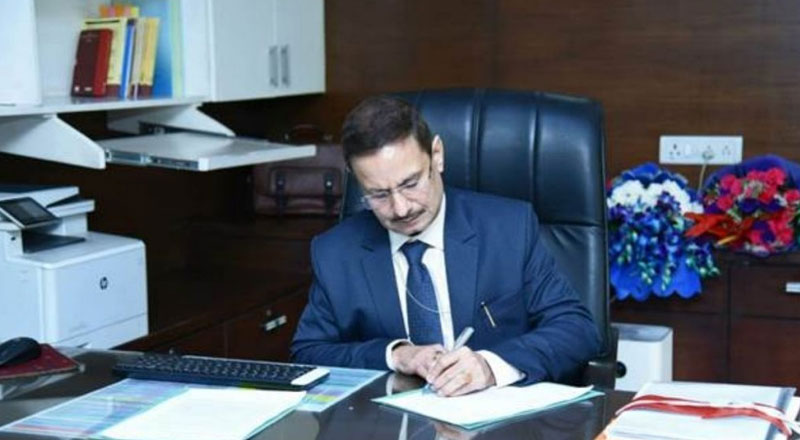Godrej Industries has its CSR initiatives designed in line with the Government’s social development programmes and the priority needs of the communities. Over the years, it has also aligned CSR & sustainability efforts with the UN’s Sustainable Development Goal and national priorities to deliver high-impact programmes that are easy to scale. Dr Vikas Goswami speaks to SPOI on how it designs its initiatives to achieve its CSR objectives –
According to you, what are the top priorities in your organization for taking initiatives through CSR for the inclusive growth of your organization?
At Godrej Industries, we recognise CSR not only as policy but the way we do our business and connect with our community. On any given day, 1.1 billion people use our products globally. Sustainability is an integral part of our business and value chain that helps us provide high quality, affordable goods for the masses.
In 2011, we took a closer look at our operations and impact, and engaged multiple stakeholders to understand opportunities, prioritise our initiatives and renew our focus. This led to the formulation of our sustainability strategy, ‘Good & Green’ which is one of our four key imperatives for our business vision.
The sustainability strategy makes our businesses more accountable to the community while we continue to drive our shareholder value. It helps us improve the lives of those at the base of the pyramid, preserve the environment, improve efficiency of our operations and innovate. As part of Good & Green, the Godrej Group aspires to create a more employable Indian workforce, a greener India and innovate for good and green products.
Our team members also form an integral part of our initiatives. Through Brighter Giving, a structured volunteering platform, our team members offer their time and skills to help address a non-profit organisation’s needs.
What are best practices you are following for designing a robust CSR framework?
As per the Ministry of Corporate Affairs’ guidelines, we have formed a board committee to overlook CSR initiatives at Godrej. We have also constituted a CSR committee that recommends, helps strategize and guides the CSR projects on ground. We have a company level CSR policy that is the guiding framework of our initiatives.
We run our programmes in partnership with non-profits who have the relevant expertise and are aligned to our goal. We carry out thorough due diligence both online and offline and then get our partners on board. They implement the project on ground and we have a robust MIS system in place that tracks the project performance.
Education is a key driver for ending poverty and boosting shared prosperity. Is there any mandate to support the education sector in the society?
As part of our sustainability strategy, we are largely focussed to create a more employable Indian workforce, a greener India and innovate for good and green products. Having said that, we agree education support is key for driving growth in the communities; our community development initiatives do exactly that.
Through community development, we carried out a detailed community needs assessment at our plant locations in areas of education, water, sanitation and health support. We have covered communities around 30 of our manufacturing plants and in line with the assessments and have streamlined our activities and implemented high impact community development projects that primarily look to build education quality of the local schools.
What is the potential for companies to collaborate and achieve the CSR objective?
No one entity can achieve effective results in social development. Corporates need to work in collaboration with non-profits, government, and the communities to share accountability and achieve greater impact. All stakeholders should be a part of the process.
For example for our integrated watershed management programme, we are working in partnership with NABARD to help restore the ecological balance of the region and mitigate the risk of climate change for the local farmers in drought-prone regions of Maharashtra, Karnataka and Telengana. We are conserving and developing close to 10,000 hectares of land and aiming to help restore over 10 million kL of water with the help of local farmer communities. They are equally invested in the project and provide labour support and undertake sustainable farming practices. Together, we are able to mitigate the risks of climate change and drought-like events.
Could you share some of the recent initiatives of how it is shaping the path for CSR within the company?
At Godrej, our sustainability strategy is focused on inclusive growth. Most of our initiatives are aimed to have a shared impact value that is beneficial for the communities and our business.
An example is our Elimination of Vector Borne Endemic Diseases (EMBED) initiative. We initiated the EMBED project with the aim to reduce morbidity and mortality due to Malaria and Dengue in regions reporting high Annual Parasitic Index (API). We collaborate with non-profits and governments, and aim to reduce mortality due to malaria in high API regions through our intensive behavior change programme, community mobilization and increased access to preventive services and increased usage of household insecticide products. In the first phase, we are working in Madhya Pradesh, a state with one of the highest malaria burdens in India. We have collaborated with non-profit organizations and the state government to run intensive behavior change programmes. We are working with the vulnerable and marginalized groups living in tribal, hilly, and hard-to reach areas. The programme currently addresses 36% of the malaria burden of the state.
Our Community Development programme also works with communities around our manufacturing plants to address the priority needs of the community and deepen our engagement with them. For this, we carried out a detailed community needs assessment at our plant locations. We have covered communities around 30 of our manufacturing plants and in line with the assessments, we have streamlined our activities and implemented high impact community development projects that build education quality, provide clean water access and improve health and sanitation.
Livelihood initiatives at Godrej – case study
Enhancing livelihoods – Godrej addresses a critical need of enhancing livelihoods of low-income group youth. It collaborates with non-profit organizations to design and run a number of employability training programmes for young people from low-income communities. It improves the earning potential of its trainees, by building their skills, providing post-training support and empoGodrejring them. As of June 2017, Godrej has trained over 2, 68,000 youth in skills that enhance their earning potential. Some of its programmes are in beauty and hair care, animal husbandry and construction and facilities management.
Challenges – During the course of the last five years of programme monitoring and evaluation, Godrej has made certain observations about vocational training programmes and their efficacy. These have also been borne out by an independent third party impact assessment that Godrej are carrying out. Many skills needed to get by in today’s world do not involve academic knowledge; instead, they involve the ability to handle the events that occur on a day-to-day basis at home, at work, and in the community. Specific competencies (i.e. knowledge, skills, and their application) of local and cultural relevance are needed to perform everyday activities across a variety of settings.
Way forward – To help its trainees become not just skilled but also employable, Godrej introduced life skills module as part of its training curriculum. The life skills module covers financial literacy, health and work readiness, interpersonal skills, community involvement and more. Its approach is learner-focused and is aimed at not only developing knowledge but also the psycho-social skills needed to use the knowledge. Godrej is also providing post-training support to its trainees by opening them up to placement opportunities and negotiating their entry in the industry.





